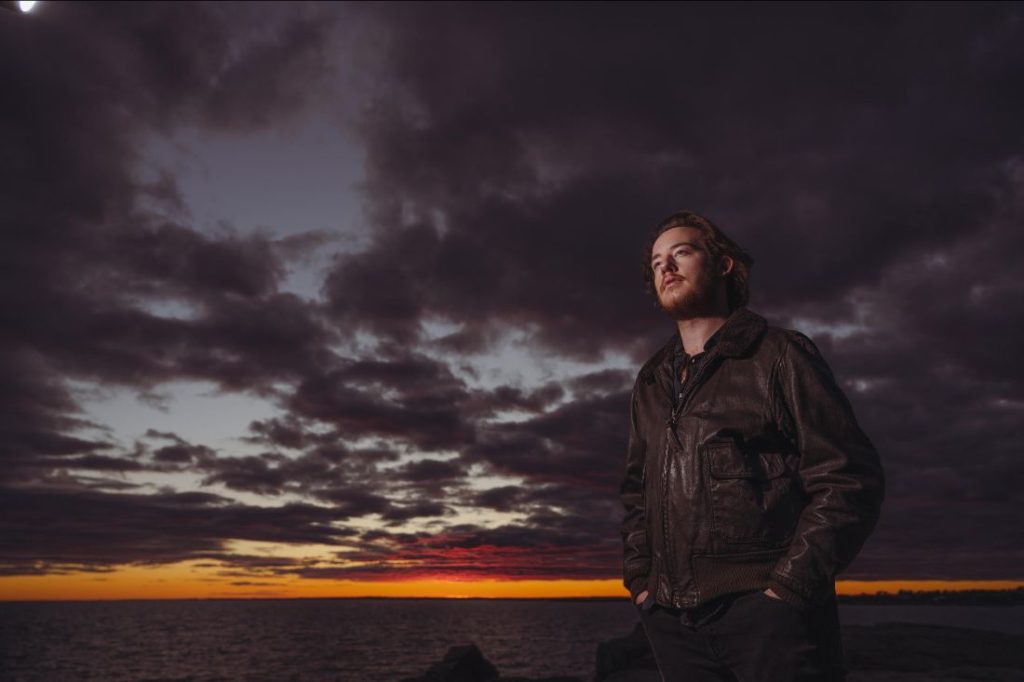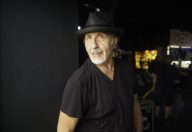Rock Guitarist Quinn Sullivan Delivers Passion with ‘Salvation’
- Like
- Digg
- Del
- Tumblr
- VKontakte
- Buffer
- Love This
- Odnoklassniki
- Meneame
- Blogger
- Amazon
- Yahoo Mail
- Gmail
- AOL
- Newsvine
- HackerNews
- Evernote
- MySpace
- Mail.ru
- Viadeo
- Line
- Comments
- Yummly
- SMS
- Viber
- Telegram
- Subscribe
- Skype
- Facebook Messenger
- Kakao
- LiveJournal
- Yammer
- Edgar
- Fintel
- Mix
- Instapaper
- Copy Link

Quinn Sullivan. (Photo: Jim Arbogast)
Quinn Sullivan at all of 25 years of age has already experienced some of life’s highest highs and lowest lows. Sullivan was a child guitar prodigy and was discovered by blues guitar legend Buddy Guy. He has also played with Eric Clapton and Carlos Santana and appeared on national TV programs including “CBS Saturday,” “Late Night,” “Ellen,” and “Oprah.” The lowest low was the loss of his mother recently, but he has turned that loss into mirroring her passion for life in his own life and in his upcoming album, Salvation.
“I have played Pittsburgh a few times before, but not for a minute. It will be nice to get back there and play a show,” said Sullivan, who spoke with Entertainment Central from his hometown of New Bedford, Massachusetts (which he says has a great local music scene). Sullivan will be performing in Pittsburgh at City Winery Friday, June 28.
I asked how he came to play the guitar at three years old. “The guitar was kinda always something that I had gravitated towards from seeing various people on stage play when I was a kid. My parents would take me to a lot of local shows growing up too and go to a lot of local music festivals. I would see a lot of people playing instruments and I thought the guitar was the coolest thing at two-three years old. And then they bought me a guitar for Christmas one year and I just took to it and started to mess around with it. I couldn’t take my hands off of it. Most kids, especially young boys, they get a football in their hands, or a baseball, and that’s all they really do.The guitar was my baseball. I always had it wherever I went. As long as I can remember, I just have been doing it and playing. I started to take formal lessons when I was about five.I have always enjoyed it so much.”
Buddy Guy Influences
“I first met Buddy Guy when he came to a little theater in my hometown and we got to head backstage and meet him and he very graciously invited me up on stage that night and we played for about a half an hour. I ended up touring with him, that turned into doing more sit-in stuff, and then that turned into developing this really interesting friendship. He ended up having me open for him for the next decade. I would do a bunch of opening stuff for him around the world. We got to play incredible venues together. It’s an experience I will always hold close to my heart. It’s a very unique opportunity to do something like that with a person of that stature.“
I asked Sullivan what were the most important lessons he learned from Guy. Sullivan replied, “He’s one of those people who doesn’t really tell you he’s going to give you advice, you kind of have to read between the lines. I would say the number one thing is just to play and give 100% of what you got every single night when on stage. I think that showed from an action point of view. He would do that every single night. He would just walk up on stage, whether he was feeling good or not, and just give it his all, give it the best he had that night.”
Sullivan said that Guy was taken advantage of, business wise, early in his career, like many performing artists of that era, especially Black musicians. He taught Sullivan to not let himself get screwed.
“I describe my music as a cross between rock and roll and soul with a bluesy undertone. I’m not a blues artist by any means. There’s enough purists out there that can do this that way better than I can. It is a cross between those genres. I’m a huge fan of pop music as well, so when I write, I write in kind of a pop context. Stylistically it ranges. I can’t really say that I am one thing.”
“I think music is in a very interesting spot. Part of it is the internet and the other part is, in this day and age, people feel free to be who they want to be.” He feels that some major bands have been constrained by their record labels and that they jump at the chance to go solo, go independent. “That it’s really a liberty to make the music you want and that’s ultimately going to attract people, especially if it’s music from your heart.”
Songs From a Personal Perspective
When asked how the loss of his mother impacted his music, “After making Salvation I realized a lot of the passion, not necessarily the subjects, but the passion behind the music was totally inspired by her energy. It sort of seeps through me in every way and every day. Musically for sure I think it had a huge impact. There’s a song that I wrote for her called “Eyes on Me” which will be on the album. It’s obviously the most personal song I’ve written. It takes on how I was feeling, it’s a very literal song. I think that my favorite kinds of songs, the kind that I try and write, are songs that have a universal theme and can be taken in many different contexts and people who listen to it can have their own meaning on the stuff. I think a lot of these songs do that on this album.”
“Dark Love” has the insightful and fun lyric, “What the hell you’d think I’d do / When the devil in me met the devil in you.” Sullivan explains, “That’s the story of people that aren’t right for each other, but can’t quit. We’ve all kind of been in that situation.” Sullivan laughs and says to count him in as having been in a couple of those situations and said the song kind of wrote itself. The title track, “Salvation,” is a melodic rocker with some fantastic guitar play and wah-wah pedal usage.
“I got together with Kevin Bowe who is an incredible songwriter and musician and the producer John Fields. We wrote the song at his studio in Minneapolis. We wrote a lot of songs on the new album together. The three of us at the span of about four or five months. I’d go back and forth to Minneapolis, we’d get together and come up with these songs. Mostly they were ideas I started and I would bring them to John and Kevin and together we would write these songs. My favorite writing sessions are when you have other like-minded people in the room who just absolutely kill it, and are able to get stuff out of you you might not be able to get out on your own.”
“For live shows I play a Gibson SG a lot, it’s one of my newer guitars. In my head I’ve always been a Fender Stratocaster guy. That would be my desert island guitar. I feel that is the one guitar I can play any style of music on and get away with it. I like the five-way switch and you can get so many different tones out of a Fender.”
On evolving into more of an adult songwriter Sullivan said, “When you’re a kid and you’re in the music industry you can’t really know what you want to do. At 12 [years-old] you don’t know anything. It’s been a lot of trial and error. After like 18, 19 years-old, there’s a part that definitely comes into play, where you’re no longer looped in with the other kids, you’re competing with 1,000 other people who are essentially trying to do the same thing that you’re trying to do. It’s a growing point, but you gotta stick with it, keep going on the course, and believing in yourself is very big. Surround yourself with the right people. It will enhance you musically and personally.” See the young phenom, Quinn Sullivan, up close and personal at City Winery in the Strip District. Salvation will be released on June 7 and can be preordered on Sullivan’s website.
Rick Handler is the executive producer of Entertainment Central.
Share on Social Media
- Like
- Digg
- Del
- Tumblr
- VKontakte
- Buffer
- Love This
- Odnoklassniki
- Meneame
- Blogger
- Amazon
- Yahoo Mail
- Gmail
- AOL
- Newsvine
- HackerNews
- Evernote
- MySpace
- Mail.ru
- Viadeo
- Line
- Comments
- Yummly
- SMS
- Viber
- Telegram
- Subscribe
- Skype
- Facebook Messenger
- Kakao
- LiveJournal
- Yammer
- Edgar
- Fintel
- Mix
- Instapaper
- Copy Link
Follow Entertainment Central
Sign up for the EC Newsletter
Latest Stories







